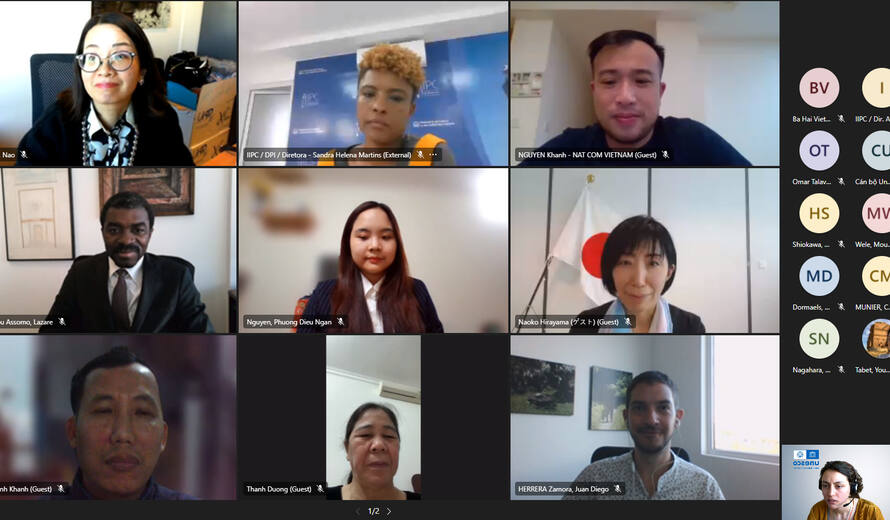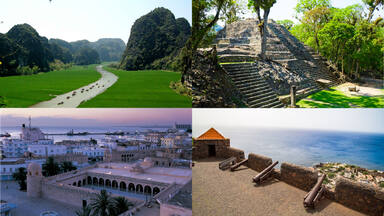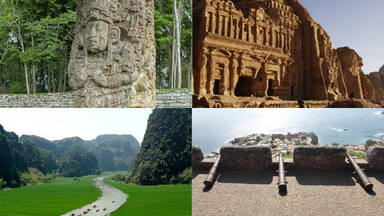Second Coordination Group Meeting on ‘Post COVID-19 World Heritage Site Management: Integration of Conservation, Tourism and Local Livelihood Strategies at World Heritage sites’
On 14 February 2023, the UNESCO World Heritage Centre organized the second Coordination Group meeting on ‘Post COVID-19 World Heritage Site Management: Integration of Conservation, Tourism and Local Livelihood Strategies at World Heritage Sites’, a project funded by the government of Japan through the UNESCO/Japanese Funds-in-Trust.
Subsequent to the project’s launch in June 2022 (see Post COVID-19 World Heritage Site Management: Integration of Conservation, Tourism and Local Livelihood Strategies at World Heritage sites - UNESCO World Heritage Centre), the project community from four countries gathered to discuss the progress that has been made since the first meeting.
The management authorities of four participating World Heritage sites from Cabo Verde, Viet Nam, Honduras and a new partner in Sudan (see the list below) presented their ongoing activities and the specific challenges they face in implementing the projects. It was also the opportunity to discuss future activities and case studies to reflect on the project implementation and reporting.
The meeting concluded with substantial suggestions such as to develop strategic collaboration with medias to promote stories behind heritage in connection with local communities, as well as the use of existing Social Networks such as Facebook to promote sustainable tourism offers. The next steps of the project will be the concrete activities on the ground as well as the organization of sessions to showcase case studies on community involvement in the post-COVID-19 context and present branding methods of local cultural values.
Through a series of pilot cases at World Heritage properties in four regions of the world, this project is aimed at proposing replicable strategies and methodologies for integrating heritage preservation, livelihood improvement and building authentic partnerships between the site management authorities and local communities at World Heritage properties. The project’s expected outcomes also include enhanced digital presence to promote sustainable and locally sourced tourism offers following the Policy Document for the Integration of a Sustainable Development Perspective into the Processes of the World Heritage Convention (2015).
The participating sites and countries are the following:
- Cidade Velha, Historic Centre of Ribeira Grande – Cabo Verde
- Gebel Barkal and the Sites of the Napatan Region - Sudan
- Trang An Landscape Complex – Viet Nam
- Maya Site of Copan - Honduras
Objectives and Activities:
- Identification of key local stakeholders (SMEs, cooperatives, communities);
- New and locally valued business models for increasing livelihoods;
- Development of digital tools;
- Networking and partnership among regions and participating World Heritage properties;
- Intra-regional knowledge sharing;
- Capacity building;
- Publication and dissemination of experience and outcomes of the project;
- Building partnerships and development of networks between institutions and experts on the sub-regional and international level.
Contacts: Nao HAYASHI (n.hayashi@unesco.org)


